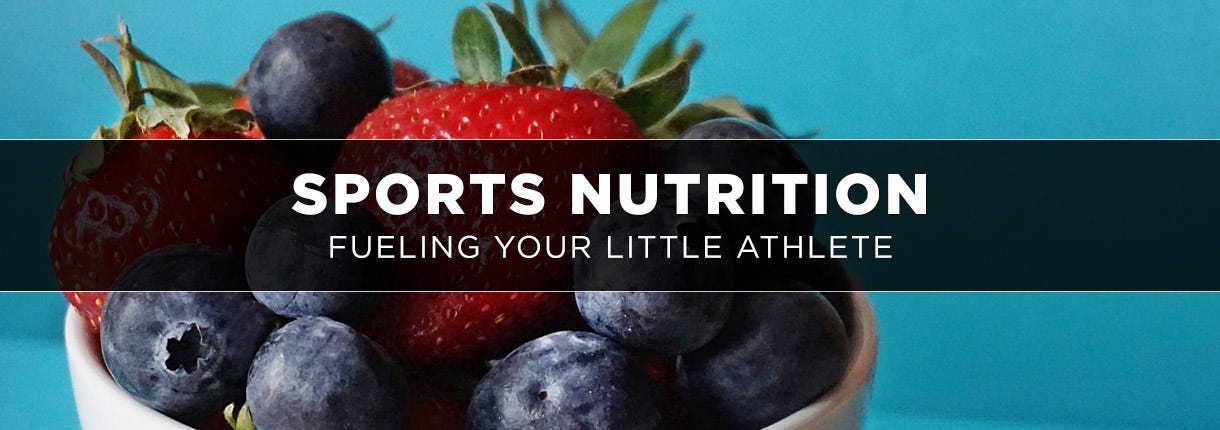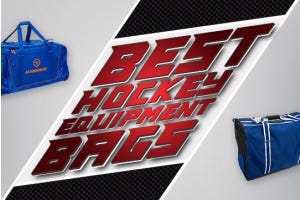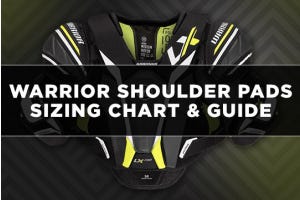Sports Nutrition: Fueling Your Little Athlete

Making sure that your kids stay active is a somewhat challenging feat these days. But any visit to the local baseball field, hockey rink, gymnasium or swimming pool will restore your faith in a good portion of this generation's physical well-being. With this physical activity, however, we as parents and coaches need to be sure that our kids are properly nourished.
When a child decides to play a sport, parents scramble around for the proper equipment... which, of course is necessary to keep them safe. What your young athlete eats and drinks may very well be the most important performance enhancer of all. Much like a car, our bodies need fuel to continue working and performing. And nutrition is big business for a reason. Most people have no idea what an athlete should be eating and drinking. Even professional athletes enlist the services of a professional nutritionist. You might not want to go quite that far, so here are some tips for keeping your little Ovechkin fueled up and ready to go!
Please note: Endurance training (multiple daily workouts) may mean that you will require slightly more servings of certain foods than is generally recommended.
So what exactly SHOULD their diet be?
We've all heard that carbohydrates are essential for maintaining a high energy level. Carbohydrates are the first energy source the body uses to exercise. They are stored in the muscles as glycogen, but our bodies are only able to store enough of this fuel for about 90 minutes of activity. Once your reserves are depleted, your body needs to be refueled. Pasta, rice, whole grains (as in breads and cereals), fruit and vegetables and even milk products are all great sources of carbohydrate.
1. Carbohydrates
During a busy and rigorous training schedule, you should keep carbohydrates to snack on before, during and after exercise.
Before exercise, carbs raise your energy level and delay fatigue. You should aim for a light carbohydrate meal prior to a workout or training session. By light, we mean half a bagel with butter, a fruit smoothie, maybe some yogurt with oatmeal.
During your workout, carbohydrates help to maintain blood sugar to fuel your muscles. If your training session or game lasts longer than 90 minutes, you will need additional carbohydrates to maintain energy levels. This is the time that you'll want easy to digest carbohydrates, which can include such energy boosters as energy bars, dried fruit or even a peanut butter and jelly sandwich.
After your game or exercise, you'll need to replenish your energy supply quickly. This will ensure that your endurance level stays high for the next physical event. You want to repair the depletion as quickly as possible. For continued success in future training sessions or sporting events, be sure to consume carbohydrates and protein within 30 minutes of completing your training session to optimize glycogen stores.
Your recovery snack options can include trail mix, sports bars, and yogurt. Just be sure that the amount of carbs in your snack are higher than normal.
2. Protein
It's often rumored that a high protein diet is required when exercising or training. Many athletes supplement their diet with protein powders. In fact, for most athletes, the protein intake from their regular diet is quite sufficient to meet these needs. You want to be sure that your protein intake does not replace your carbohydrate intake. Essentially, carbs help fuel the energy more than protein does, so your focus should be on carbs.
3. Hydration
Even slight dehydration can impair your performance, so fluid intake needs to be an essential part of an athlete's mindset. Keep in mind that children are at a greater risk of becoming dehydrated than adults. Atletes should be drinking before, during and after a game or workout. Remind young atletes that they should be drinking at least 5 ounces of water or sports drinks every 15-20 minutes. Kids typically wait until they are thirsty, which is generally too late. Dehydration occurs well before you feel thirsty.
While water is the best thirst quencher and cure for dehydration, kids tend to shy away from it a bit. If your child resists drinking water, be sure that you have sports drinks handly. As long as they are drinking one or the other, you really needn't worry too much.
4. Eating out
Attending competitions and tournaments aften means that you are eating out in restaurants... primarily fast food. But even fast food restaurants can a good part of an athlete's nutrition... if the right choices are made.
Just remember that you need to be careful of what is on top. Dressings and condiments are usually what make a meal a high fat and unhealthy choice. Avoid breading and deep-fried foods. Pizza is ok in moderation, but fatty meat toppings should be avoided. Mayonnaise and other









Login and Registration Form
or
Create an account